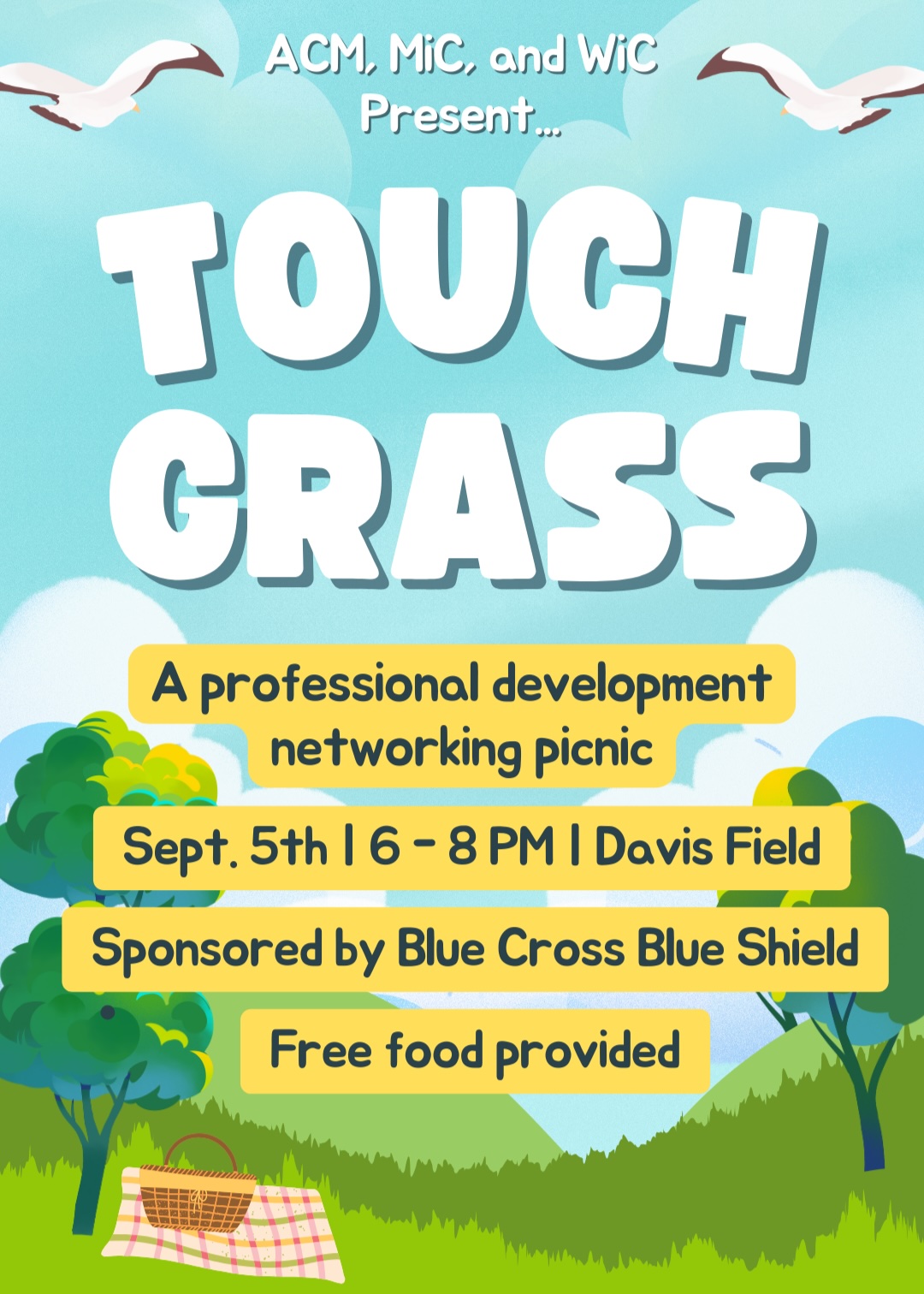Generative AI, what they are, how they work, and how to use them.
- 69 views
AI-athon: Bring your data, research problem, and a potential Machine Learning approach (perhaps developed during AI-ification) for full implementation during a one-day hands-on workshop. The AII will provide space and expertise to guide you through installation, coding, and development of a Machine Learning engine. To remain effective, we aim to offer a low participant-to-instructor ratio, therefore, space is limited. At the end of this one-day workshop, you will walk away with a functional ML engine, the knowledge of how to improve the core engine, and have formed a collaborative research in AI/ML.
Registration form: https://forms.office.com/r/muzySJTtnY
AI-ification: Present your research that can benefit from modern AI approaches to a panel of friendly and knowledgeable AI practitioners during the first hour of this meeting. During the second hour of the meeting, the panel will brainstorm and recommend ways of integrating modern AI techniques into your existing research. Form new collaborations and partnerships during the brainstorming session, take the formed ideas to AI-athon, and embark on your path to Deep AI-ification.
Registration form: https://forms.office.com/r/n5dMWBFCXT
Details at https://research.cec.sc.edu/aii/ai-ification
Roundtable Discussion: Join us in a 2-hour meeting when an AI-related topic (suggested by the USC community) is presented by a panel of experts (during the first hour) and discussed by the broader community of participants and experts (during the second hour). The topics will be suggested by the participants and selected based on popularity.
Registration form: https://forms.office.com/r/n4UznxruNg
More details at https://research.cec.sc.edu/aii/roundtable-discussion


Hope you have had a wonderful start of the semester. Women in Computing will be hosting its first meeting of the Fall semester 6 – 7:30pm, Thursday August 29, in Honors Residence Hall B110! Women in Computing is open to all majors and students interesting in topics of computing technology, and diversity/inclusion within the tech industry. Everyone – all genders and majors is welcome!
Author : Yang Ren
Advisor : Dr. Dezhi Wu, IIT Dept. & Dr. Yan Tong, CSE Dept
Date : Aug 26th
Time: 9:00 am – 11: 00 am
Place : Teams
Link: https://teams.microsoft.com/dl/launcher/launcher.html?url=%2F_%23%2Fl%2…
Dial in by phone
+1 803-400-6044,,897438708# United States, Columbia
Find a local number
Phone conference ID: 897 438 708#
Abstract
Low Birthweight (LBW) is a major public health issue resulting in increased neonatal mortality and long-term health complications. Traditional LBW analysis methods, focusing on incidence rates and risk factors through statistical models, often struggle with complex unseen data, and thus their effectiveness is limited in early prevention of LBW. As such, more advanced LBW prediction models are needed, so this dissertation delves into this important research area through proposing and examining novel machine learning (ML) and deep learning (DL) algorithms to more accurately predict LBW during the early stage of birthing individuals’ pregnancy period. This dissertation consists of three studies, which covers the following three major research topics.
The first topic focuses on the examination of the effectiveness and impact of various data rebalancing techniques for LBW prediction to solve extremely imbalanced data issues. Through this investigation, we established a foundational pipeline for LBW prediction, paving the way for further development and refinement in subsequent studies. This first study also included an extensive feature importance analysis to identify key factors in LBW classification, crucial to guiding targeted interventions to improve birth outcomes.
The second topic aims to develop a novel longitudinal transformer-based LBW prediction framework, which integrates prenatal mothers’ historical health records and current pre-delivery data, making it possible to provide more comprehensive and relevant input features for LBW prediction. This framework’s ability to effectively process and analyze these diverse data inputs marks a more significant advancement than previous approaches that primarily focus on immediate pre-delivery factors. As a result, this enhanced model is proved to improve the accuracy of LBW predictions, and thus offering a more robust tool for more effective early intervention strategies.
The third topic is to propose and examine a pioneering fusion framework that combines structured medical records with rich text-based data. This large language model (LLM)-based approach aims to explore and optimize the strengths of both quantitative and qualitative data sources, for enhancing the predictive accuracy and explainability of the LBW prediction models. By integrating diverse data types, this proposed method is expected to offer in-depth insights into the myriad factors contributing to LBW, potentially unveiling previously unrecognized and more granular risk factors to refine the prediction models further.
In summary, this dissertation presents a comprehensive exploration of using advanced ML and DL algorithms in the prediction of LBW through a series of three studies. From establishing LBW prediction pipeline with rebalancing strategies (Study 1), developing a transformer-based approach (Study 2) to introducing a tabular-text fusion framework (Study 3), this research will contribute to a substantial advancement in prenatal care. By enabling earlier and more accurate identification of LBW risks, this work has the potential to transform prenatal intervention strategies, leading to improved health outcomes for both mothers and their infants.
DISSERTATION DEFENSE
Author : Rui Xin
Advisor : Dr. Jijun Tang
Date : July 15, 2024
Time: 9:00 am – 11: 00 am
Place : Zoom
Link:https://zoom.us/j/94479902244?pwd=8XbYQPbZaxXXeBt4e1r5gqrBy6upb4.1
Meeting ID: 944 7990 2244
Passcode: 126908
Abstract
Deep Learning is pivotal in advancing data analysis across various scientific fields, from genomics to materials discovery. Despite its widespread use, efficiently learning from limited data and operating under resource constraints remains a significant challenge, often limiting its full potential in environments where data is scarce or resources are restricted. This dissertation explores Active Learning and Automated Machine Learning (AutoML) powered by Bayesian Optimization to enhance the efficiency of machine learning across multiple disciplines. It focuses on algorithm optimization and data management through three interconnected studies.
In the first study, we investigate how data management technique - active learning helps discover new materials with target properties in limited dataset considering the vast chemical design space. We propose an active generative inverse design method that combines active learning with a deep autoencoder neural network and a generative adversarial deep neural network model to discover new materials with a target property in the whole chemical design space. Our experiments demonstrate that although active learning may select chemically infeasible candidates, these samples are beneficial for training robust screening models. These models effectively filter and identify materials with desired properties from those generated hypothetically by the generative model. The results confirm the success of our active generative inverse design approach.
In the second study, we explore cancer heterogeneity and specificity through the analysis of mutational signatures, using collinearity analysis and machine learning techniques. These techniques include either a decision tree-based ensemble model or a flexible neural network-based method with automated hyperparameter optimization, each customizing a neural network for individual sub-tasks. Through thorough training and independent validation, our results reveal that although the majority of mutational signatures are distinct, similarities between certain mutational signature pairs are observed through both mutation patterns and mutational signature abundance. These observations can potentially assist in determining the etiology of still elusive mutational signatures. Further analysis using machine learning approaches indicates specific mutational signature relevance to cancer types, with skin cancer showing the strongest specificity among all cancer types.
Finally, we analyze cancer heterogeneity by examining immune cell compositions in tumor microenvironments, using neural architecture search to develop tailored models for classification subtasks. By analyzing transcriptome profiles from 11,274 patients across 33 cancer types to identify 22 immune cell types, we employ deep learning to model outcomes for cancer type and tumor-normal distinctions, utilizing the Shannon index for immune cell diversity and Cox regression for prognostic evaluations. Our findings reveal significant immune cell differences between tumors and normal tissues, with some discrepancies in directional differences across cancers. Immune cell composition patterns modestly differentiate cancer types, with sixteen significant prognostic associations identified, such as in kidney renal clear cell carcinoma. Additionally, immune cell diversity shows marked differences in seven cancer types and correlates positively with survival in some cases, underscoring the lack of a universal standard across all cancers.
DISSERTATION DEFENSE
Author : Xiaoyi Liu
Advisor : Dr. Jijun Tang and Dr. Yan Tong
Date : May 07, 2024
Time: 9 am – 11: 00 pm
Place : Teams
Link: https://teams.microsoft.com/l/meetup-join/19%3ameeting_NTFlYTIwM2EtMjc3…
Meeting ID: 236 573 306 493
Passcode: UTL2Gs
Abstract
Synthetic biology advances and combines the expertise of engineers and biologists, bridging the gap between engineering and natural life. Synthetic biology has been generally categorized into two broad branches by developing new biological components, networks, and systems to reprogram organisms. The first branch involves using synthetic molecules to mimic natural biological functions. The second branch focuses on assembling natural biological components in novel ways, aiming to produce systems with unique, practical functions. Thus, the de novo engineering of biological modules and synthetic pathways is used in related practical bioengineering applications, such as drug-targeting strategies and microbial product manufacturing. Therefore, synthetic biology represents a new paradigm in scientific exploration and innovation, with widely used implications for our understanding and optimization of biological systems.
Over the past decades, there has been a significant increase in the amount of available whole-genome sequencing data and experimental data due to the emergence of new automation technologies, such as high-content imaging, high-throughput screening, and sequencing. Given the growth of these data sets, researchers are unable to summarize these data simply from experience and memory. Thus, stable and efficient computational methods are required to integrate them to predict or reveal new phenomena or insights that have never been discovered. However, incomplete knowledge of metabolic processes impairs the accuracy of biological systems, hindering advancements in systems biology and metabolic engineering. Additionally, some fundamental challenges still remain. Firstly, problems in systems biology are often cross-scale and multi-modal, yet existing computational methods for problem definition and model design are often single-scale and single-modal. Secondly, biological systems are multi-scale, unbalanced, and noisy, making structuring and benchmarking this complicated data very difficult. Thirdly, most natural or valuable products' complete biosynthetic pathways are unknown. Thus, computer-aided biosynthesis planning holds significant value.
To address the above challenges, we introduce multi-scale deep learning-based representation learning methodologies to understand and optimize the downstream tasks in systems biology, such as metabolic pathway inference, missing reaction prediction in GEMs, and retrosynthesis prediction. Specifically, our first study introduces a novel Multi-View Multi-Label learning framework for Metabolic Pathway Inference (MVML-MPI), which outperforms State-Of-The-Art (SOTA) methods by accurately representing the complex relationships between compounds and pathways. In the second study, to address the limitation of incomplete metabolic knowledge in GEMs, we proposed a novel framework named hypergraph Convolution network and attention mechanism integrated Explorer for GAPS prediction of metabolism termed CLOSEgaps. It is a comprehensive deep learning-driven tool that represents the hyper-topological information of GEMs and effectively fills gaps through hyperlink prediction, thereby enhancing the accuracy of phenotypic predictions. In the third study, we proposed a novel end-to-end framework for one-step retrosynthesis that combines the power of a graph encoder, which integrates learnable structural information, with the capability to sequentially translate drugs, thereby efficiently capturing chemically plausible information (RetroCaptioner). This research presents an advancement in systems biology by introducing a suite of multi-scale deep learning methodologies. These methodologies tackle key challenges such as MVML-MPI enhancing our understanding of complex metabolic pathways, CLOSEgaps innovatively filling gaps in metabolic models, and RetroCaptioner facilitating the process of retrosynthesis. Taken together, they form a comprehensive and integrated approach, and our proposed methods significantly advance the capabilities of synthetic biology.